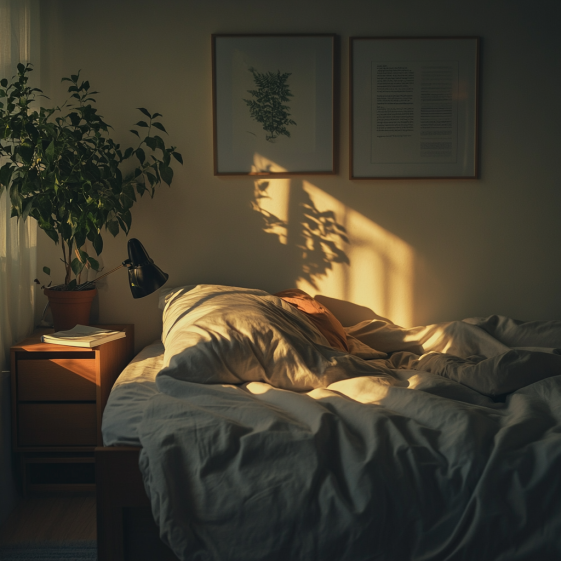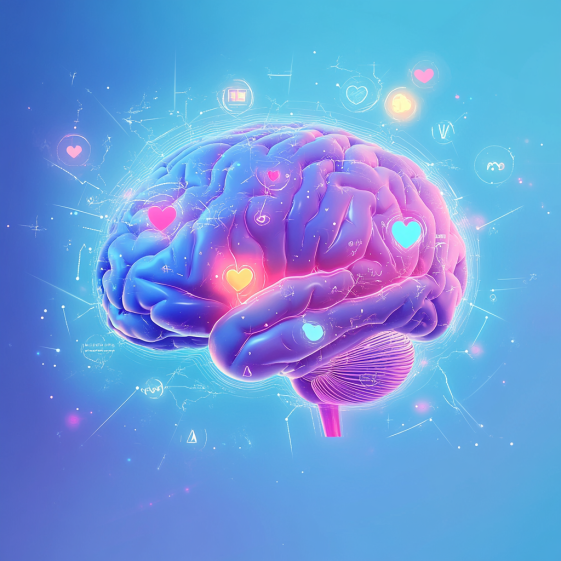Morning Sunlight: Sleep Better, Boost Mood & Energy
Brightened Intro
If you’re waking groggy or wired at bedtime, morning sunlight is likely the missing piece. Just 10–20 minutes of morning sunlight within an hour of waking helps reset your circadian rhythm, lowers sleep latency, and lifts mood so you fall asleep faster and wake feeling refreshed.
Key Takeaways on Morning Sunlight
- Get light early: Step outside within 30–60 minutes of waking for 10–20 minutes.
- Anchor your clock: Consistent morning sunlight keeps your sleep-wake cycle predictable.
- Boost mood & energy: Early light supports serotonin and a healthy a.m. cortisol rise.
- Backups help: On dark mornings, use a 10,000‑lux therapy lamp near eye level.
- Stack habits: Pair sunlight with movement, journaling, or breakfast for easy consistency.
Feeling Groggy in the Morning? Morning Sunlight Might Be the Missing Piece
Ever wake up feeling groggy—even after a solid eight hours under the covers? Or maybe you lie in bed wide-eyed at night, wondering why you’re not tired even though you’re completely drained? Here’s something that might surprise you: the real culprit could be a lack of morning sunlight.
☀️ Yep, that soft, golden light streaming through the window isn’t just pretty—it’s powerful. It resets your circadian rhythm, improves sleep, and even lifts your mood. Let’s explore how catching early rays can transform your days (and nights), plus easy ways to make it part of your cozy morning routine.
Why Morning Sunlight Matters for Sleep and Mood
In one line: early light is your body’s daily “start” signal. Your internal clock (the circadian rhythm) uses morning light to time alertness, sleep pressure, and hormones that influence energy, mood, and metabolism—making morning sunlight a simple, no-cost way to feel and sleep better.
Your body has its own internal clock, called the circadian rhythm, and it loves natural cues. Light tells your body when to be alert, when to rest, and how to balance hormones that influence everything from your sleep to your stress levels.
Without enough sunlight in the morning? Your clock gets out of whack. That’s when you might start feeling foggy, anxious, or wired at bedtime. But the fix is easier (and cheaper) than melatonin gummies: morning sunlight.
What Is the Circadian Rhythm?
Quick answer: it’s a ~24‑hour timer that uses light and dark to cue alertness by day and melatonin at night—so your morning sunlight routine sets up better sleep later.
Your circadian rhythm works like a built-in timer that follows a 24-hour cycle. It responds to light and darkness to help regulate melatonin production—a
hormone that controls your sleep.
- Morning light = wake-up call → Bright light signals your brain to cut melatonin production, so you feel awake and alert.
- Evening darkness = bedtime prep → As the sun sets, your body naturally ramps up melatonin, making you sleepy.
But when you’re indoors all day or scrolling through screens late at night, that rhythm gets scrambled. Result? Tossing and turning at night. Struggling to stay awake during morning meetings.
The Power of Morning Sunlight to Reset Your Rhythm
Bottom line: ten calm minutes outdoors after waking can realign your sleep-wake cycle, helping
you fall asleep faster and wake up more refreshed.
Here’s what those golden rays can do:
- ☀️ Suppress Melatonin – Helps you feel alert by telling your body it’s daytime.
- ☀️ Boost Serotonin – Light lifts your mood and helps
create melatonin for better sleep later. - ☀️ Balance Cortisol – A healthy cortisol spike in the morning energizes you without caffeine.
- ☀️ Strengthen Your Internal Clock – Consistent light exposure each morning keeps your sleep schedule predictable.
For a deeper dive into how sunlight
affects your natural rhythm, check out this guide from 1000 Hours Outside.
Easy Ways to Get More Morning Sunlight (Even If You Work Indoors)
Quick win: design a low-effort cue (coffee on the porch, short walk, watering plants) so morning sunlight happens on autopilot—no extra willpower needed.
🌤️ Real-Life Tips:
- Step outside within 30–60 minutes of waking up. A 10–20 minute stroll or just sitting with your coffee in the light is enough.
- Open those curtains wide. Let the natural light pour in—even if you’re still in your robe.
- Sit near a sunny window. Especially while eating breakfast or working on your laptop.
- Use a light therapy lamp. On cloudy days or in winter, a 10,000-lux lamp is a great backup.
Pair that with your morning playlist or journaling time, and you’ve got yourself a cozy wellness ritual.
How Morning Light Impacts Sleep Quality
Snapshot: without daily light, your brain stays in “sleepy mode” too long, then refuses to power down at night—consistent morning sunlight flips that script.
- Lying awake at night, wired and restless
- Feeling groggy or foggy throughout the day
- Experiencing mood dips or seasonal blues
- Slower metabolism and low energy
On the flip side, people who get early sunlight often fall asleep faster, sleep deeper, and feel more energized during the day. If you’re working on
building better sleep hygiene, this is a game-changer.
Boost the Effects: Pair Morning Sunlight with These Sleep Habits
TL;DR: stack light with simple routines—consistent schedule, earlier movement, and a calm wind‑down—to multiply the benefits of morning sunlight.
💤 Sleep-Boosting Combos:
- Stick to a set bedtime and wake-up time. Even on weekends. (Yes, we know, it’s hard.)
- Cut screen time at least an hour before bed. Try switching to reading or journaling instead.
- Exercise earlier in the day. Morning movement can support better sleep later.
- Create a calm wind-down routine. Think soft lamps, cozy blankets, and a good book.
Need help creating a cozy, sleep-friendly bedroom? Check out our complete
guide to bed sizes and comfort.
Bonus Perks: Morning Light = Better Mood and Focus
Quick hit: beyond sleep, early light supports dopamine and stable energy so you feel focused, upbeat, and resilient all day.
- 🌞 Feel more focused. Light triggers dopamine, helping with alertness and concentration.
- 🌞 Avoid that 3 p.m. crash. Morning sunlight helps keep your energy stable throughout the day.
- 🌞 Support mental health. A balanced circadian rhythm can lower anxiety and improve your overall mood.

FAQ
- How many minutes of morning sunlight do I need?
- Start with 10–20 minutes outside within 30–60 minutes of waking. On overcast days, aim for a bit longer or use a 10,000‑lux light box.
- Does sunlight through a window count?
- Some light helps, but outdoor light is significantly stronger and more effective for circadian timing. If you can’t get outside, sit by the brightest window as a backup.
- What if I wake before sunrise?
- Use indoor lights to start your day, then get morning sunlight as soon as it’s up. A light therapy lamp can bridge the gap in winter.
- Will morning light keep me up at night?
- No—early light actually helps you feel sleepy at bedtime by strengthening the body’s internal clock and building healthy sleep pressure.
- Can I wear sunglasses?
- For circadian benefits, skip dark sunglasses during your brief morning exposure (protect your eyes if needed; never stare at the sun). Regular eyeglasses are fine.
Cozy Wrap-Up: Let the Sunlight In, Sleep Better Tonight
The next time you’re wondering why you feel groggy or restless, take a peek at your morning routine. Just a few minutes of morning sunlight might be the missing puzzle piece.
🌞 So tomorrow morning, open the curtains wide, step outside, or sip your tea by a sunny window. Let the light work its magic—you might just
sleep like a baby tonight.
Related reading from Cozy Bed Quarters
- How Morning Sunlight Exposure Resets Your Circadian Rhythm & Improves Sleep
- How Blue Light Affects Your Sleep & How to Block It Naturally
- Creating the Ideal Sleep Environment
Other reading we found popular




